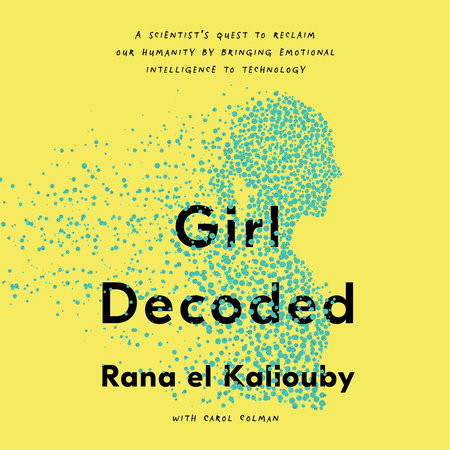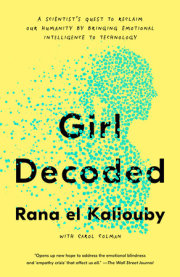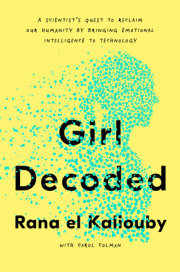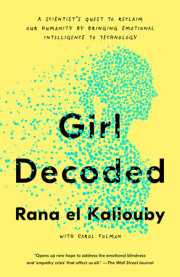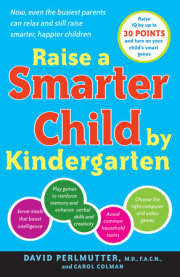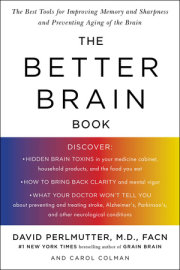1Growing Up EgyptianWe are raising our girls to be perfect, and we are raising our boys to be brave.—Reshma Saujani, founder, Girls Who Code
From the outside, my suburban Boston home is everything I always imagined a real American home should look like. Built in 1868, it is the quintessential New England central-hall Colonial, with a tidy fence, a brick walkway, a gray wood exterior, black shutters, a sun room, and a lovely backyard with flowerbeds.
But step inside and you can see that my home is more complex, like me. It is Egyptian American. Interspersed among the traditional round-armed sofa, Queen Anne chairs, and side tables are mementos from my place of birth, things you would find in Egyptian homes. Smack in the center of the living room, in front of the hearth, are two half-moon-shaped black silk screens with Arabic script that promises to “Protect our home from evil spirits” (a service that Alexa and Google Home don’t offer). A large decorative plate perched against the wall near the kitchen door reads Khatwa Aziza, “Step in” or “Welcome.” The entrance to the back door is guarded by a hamsa, a hand-shaped amulet with an eye in the middle of the palm, the ancient Middle Eastern symbol for warding off the evil eye. Just as in my mother’s home, there are always scented candles burning in my Milton home, the pungent-sweet, happy aromas of my youth: sandalwood, musk, amber mixed in with a mysterious assortment of spices. My mom used to buy her candles from a shopkeeper who made them himself; I order mine online.
Scents in particular evoke deep emotional memories. A passing whiff of perfume or aftershave from a stranger or the scent of a candle will instantly conjure up the memory of a person or place, even if I haven’t seen them or been there in years. Our brain is primed to decode scent quickly; the smell center of the brain is connected to both the amygdala (the emotion center) and the hippocampus (where memories are made and stored). These are the most ancient structures of the brain, the limbic system (aka “lizard brain”), where emotions are processed.
I live 5,400 miles away from Cairo, but in my culture, no matter how far you travel, the emotional ties to the Old World remain strong.
My childhood home was a potpourri of modern and traditional values, often in conflict with one another. I was raised in a conservative environment, with strict social mores; my sisters and I were respectful, obedient, and hardworking. We deferred to our parents on all matters, big and small. Even as adults, our parents continue to exert influence over us in ways that Westerners can’t understand. But I was also raised by a mother who was a trailblazer, who stepped outside the traditional role of women in the Muslim world and became one of the first female computer programmers in the Middle East. At a time when an Egyptian mother working outside the home was highly unusual, my mother held an important job with the Bank of Kuwait while raising three children. It was a remarkable accomplishment. And she set the bar equally high for her daughters.
My father also had very high expectations for my two younger sisters and me, and even envisioned us in high-powered positions as adults. In many ways, my dad trained us for this new world. At the same time, he grew up in a very conservative Egypt, deeply rooted in cultural expectations around the role of men and women in society. Inevitably, a real conflict developed between the person my parents raised me to be and the social and cultural expectations of being a nice Egyptian girl.
In hindsight, I wasn’t the easiest of daughters: I was a disrupter both in my professional field as an AI scientist and tech entrepreneur in a very male-dominated industry; as well as a disruptor in my country and culture, breaking the rules of what it means to be an obedient daughter and wife. I know this put my parents in a difficult situation—yet, they never once wavered in their love or support, for which I am grateful.
I love my parents, even if we sometimes didn’t see eye-to-eye. This journey is one that we all embarked on together; we’ve evolved as a family and learned together. Regardless of how religious I was or am now, one Quranic verse has been drilled into my brain: Your parents come first. And second. And third. And those parents of obedient daughters have a ticket straight to heaven. No matter how young or old I am, religious or not, a believer or not, I want my parents to get that ticket.
In some parts of the fundamentalist Muslim world, educating girls is not a priority; in others, it can get you killed. But my parents revered education; our lives revolved around it. We were well-off, certainly, but not wealthy. My parents could have spent their incomes on fancy cars or vacation homes; instead, they used their money to foot the bill for expensive private educations for my two sisters and me, and later sent all of us to college. Whatever discretionary income they had went toward travel, so we could see the world and experience new cultures. That love of learning was ingrained in us at a young age—that and an incessant curiosity about other people and cultures.
Not everyone in my family agreed with my parents’ priorities. When I was eight years old, one night during a family dinner, I overheard my uncle questioning my father’s investment in our education. “Ayman, your girls will just get married, so why waste all that money on those fancy schools?” My uncle’s sons, my cousins, would constantly tease my sisters and me that the likelihood of our doing anything useful with our lives was dismal.
My mother would never have challenged my uncle or my father in public, but I suspect that later that evening, my father got an earful from my mother about the value of education. She was the one who picked those “fancy schools” for us—my dad left those kinds of domestic decisions up to her. I am eternally grateful to my father for not listening to my uncle, and to both my parents for doing everything they could to instill a fierce drive within us to do whatever we wanted to do. At times, my parents must have been horrified by my choices. Getting a divorce, founding and running a precarious start-up, living in the United States with my two children—this was not exactly the life my parents had pictured for me. Yet they laid the foundation that enabled me to break with Egyptian cultural norms, strike out on my own, and succeed.
I come from a close-knit, successful Muslim family, the kind you don’t hear about very often in the West. My parents grew up in Heliopolis, an upscale community in the greater Cairo metropolitan area. They met at a computer-programming class taught by my father. I doubt they would have met otherwise. My mother’s family hobnobbed with Cairo’s elite at the exclusive Heliopolis Club on the weekends. Nor would she have met him at the disco parties she went to in college, wearing micro miniskirts and cropped tops, escorted by her older brother, Shafie.
My father, Ayman el Kaliouby, lost his father when he was five years old. He didn’t have much time for fun; he had to grow up quickly. His mother was a widow with five children. My paternal grandmother never remarried, devoting her life to raising her children; they managed to get by, but the lack of an income and a father put a strain on them all.
My mother, Randa Sabry, was raised in more luxurious surroundings. Her father, Shafik—I called him Gedo, which means “grandfather” in Arabic—was in the military and was the director of Hurghada International Airport on the Red Sea, nearly three hundred miles and a five-hour drive away. My mother pretty much saw him only on holidays, but his position enabled them to live a life of upper-middle-class privilege. Her mother, Doreyya (Dodo for short), ran a complicated household, replete with a full-time cook, a housekeeper, and a driver. My mother attended an all-girls school and swam competitively throughout high school.
My parents both attended Ain Shams University, one of the top two public universities in Egypt. But my father is seven years older, and while my mother was in college, majoring in business administration and partying, he was in Austria.
As a youth, my father was a fanatical supporter of Gamal Abdel Nasser, the second president of Egypt, who led a military coup in 1952, deposing the monarchy. I think Nasser held a special appeal for my father, who saw him as a father figure. Nasser was a brash, charismatic leader, full of bravado. He nationalized many industries (including the Suez Canal), threw out foreign companies, and convinced Egyptians that they were invincible, that they could manage without any outside help. A “nationalist,” he turned the country inward.
My father believed every word of Nasser’s impassioned rhetoric: “Egypt ruled the world! We had the largest and strongest army in the world.” According to Nasser, Egypt had the best of everything. Then came the Six-Day War in 1967 between Israel and Egypt, Jordan, and Syria, and my father’s whole world came crashing down.
Copyright © 2020 by Rana El Kaliouby. All rights reserved. No part of this excerpt may be reproduced or reprinted without permission in writing from the publisher.

